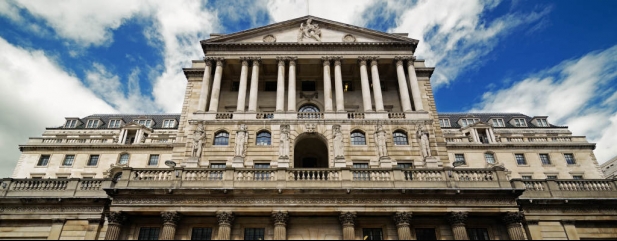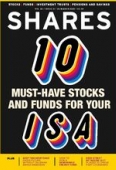Archived article
Please note that tax, investment, pension and ISA rules can change and the information and any views contained in this article may now be inaccurate.
Argument strengthens in favour of UK stocks

Comments from the Bank of England on 18 March that there is a better outlook for UK economic growth than previously anticipated will strengthen the argument that UK stocks are ripe for picking, particularly companies with a domestic focus.
Also supporting this argument is the fact the UK is more advanced with its vaccine rollout compared to many other countries, which will help to improve consumer and business confidence and likely lead to greater spending as the year progresses.
About half of the stocks in the FTSE 250 earn their money in the UK. So far this year the index is up 4.5%, ahead of the FTSE 100’s 2.3% and slightly behind the 6.3% from the US S&P 500 index.
Among the best performing FTSE 250 stocks with a strong UK bias is Virgin Money (VMUK) which has advanced 46.2%, and Greencore (GNC) which is up 40%.
Both of those stocks fall under the value category which has been in vogue since November 2020 when the first Covid vaccines were confirmed. Value stocks is a term to describe companies that are trading on low valuations.
Investors no longer have to pay rich ratings to find companies with growth because ‘value’ stocks now have brighter prospects as vaccines help to reopen society.
Virgin Money was previously out of favour due to operating in a low interest environment that made it hard to make good money. Rates could go up once the economy strengthens, hence why investors are now looking at it again.
Greencore suffered from a sharp drop in ‘food on the go’ sales. Signs that more people are returning to offices would suggest a near-term recovery in demand for packaged sandwiches.
On 19 March, markets were weak globally (in addition to the negative impact of rising bond yields) as new lockdown measures in France and Italy dampened hopes for their economic recovery and reminded us that countries are still vulnerable to more lockdown restrictions. That hit shares in oil producers, airlines and hotels.
Some UK companies will suffer from any setback to a revival in tourist activity. Even so, many UK businesses could have enough domestic demand not to be derailed by what’s going on overseas. That might explain why the stocks rising in a falling market on 19 March included UK-focused names including housebuilder Vistry (VTY) and retailer Dixons Carphone (DC.).
Georgina Brittain, co-manager of JPMorgan Smaller Companies (JMI), says her investment trust is currently at its maximum gearing levels because she thinks there are so many good opportunities among UK stocks. This refers to the investment trust borrowing money to have more cash to invest in the markets.
She says the trust has even been selling some holdings to create cash for redeployment because she sees so many UK stocks that look attractive.
‘We think the consumer, really truly, is raring to go. They are desperate to get out and spend money. Yes, we’d like to go overseas (on holiday) but very clearly all of us will be in the pub, restaurant, cinema, bowling, etc, this year.’
The key question investors should be asking is whether analysts have been too conservative with their earnings forecasts. We have a good idea that 2021 will be better for UK-facing companies but beating expectations will be the key driver to achieving further share price gains.
Important information:
These articles are provided by Shares magazine which is published by AJ Bell Media, a part of AJ Bell. Shares is not written by AJ Bell.
Shares is provided for your general information and use and is not a personal recommendation to invest. It is not intended to be relied upon by you in making or not making any investment decisions. The investments referred to in these articles will not be suitable for all investors. If in doubt please seek appropriate independent financial advice.
Investors acting on the information in these articles do so at their own risk and AJ Bell Media and its staff do not accept liability for losses suffered by investors as a result of their investment decisions.
 magazine
magazine








